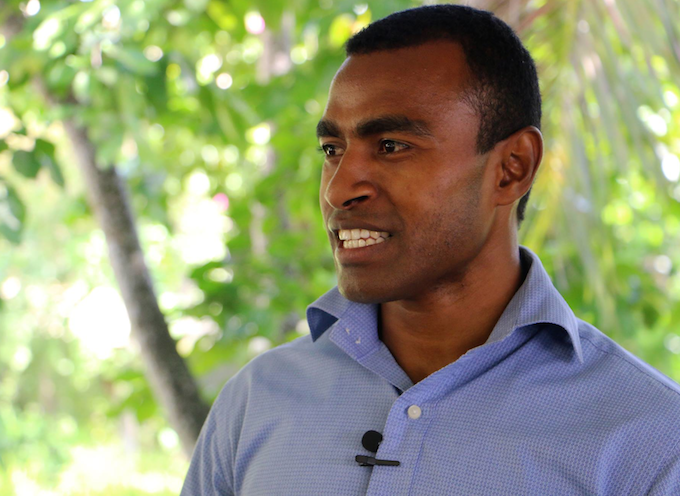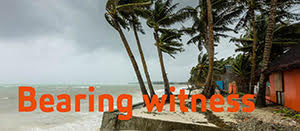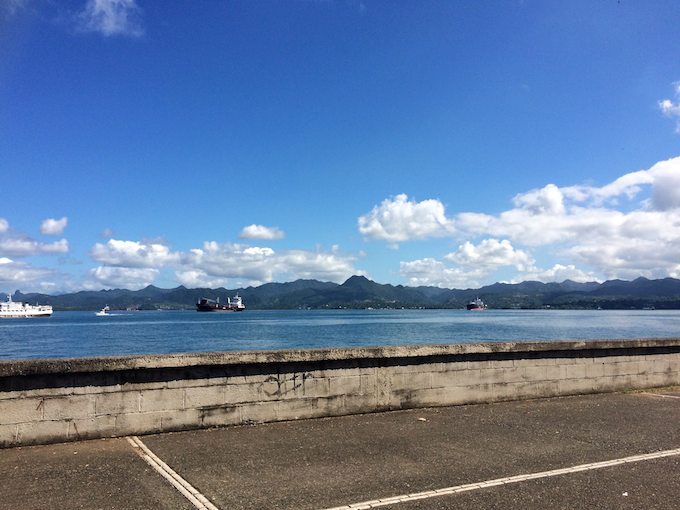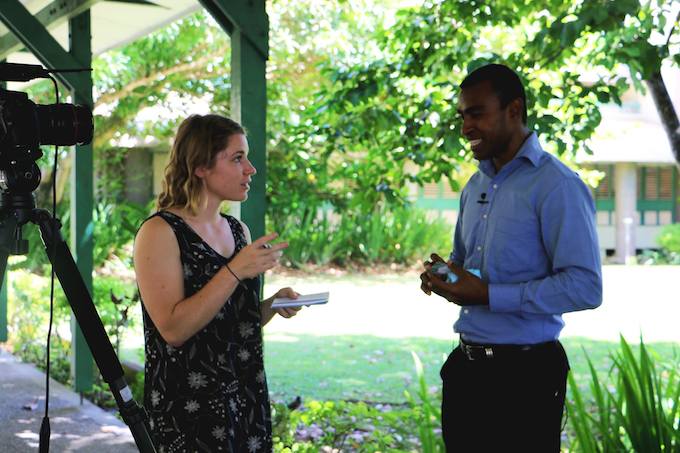
By Julie Cleaver and Kendall Hutt in Suva
The effects of climate change on vulnerable areas throughout Fiji could be reduced if the island nation adopts several more land planning measures, says a local researcher.
 Speaking at a Pacific Centre for Environment and Sustainable Development (PaCE-SD) seminar today about “Disaster Risk Reduction from a Physical Planning Perspective: Fiji”, Joeli Varo, a Lands Officer for the government’s Sustainable Land Use Planning and Development Unit, says there are two ways in which Fiji can both mitigate and adapt to flooding.
Speaking at a Pacific Centre for Environment and Sustainable Development (PaCE-SD) seminar today about “Disaster Risk Reduction from a Physical Planning Perspective: Fiji”, Joeli Varo, a Lands Officer for the government’s Sustainable Land Use Planning and Development Unit, says there are two ways in which Fiji can both mitigate and adapt to flooding.
These involve “hard measures” such as sea walls and “soft measures” such as ensuring compliance with building regulations.
“I would say we need a combination of both, because in our urban areas they need hard structures — they need sea walls because we cannot do soft measures in those areas. We cannot plant trees, we cannot retreat, we cannot relocate, and we just have to implement hard measures,” he said.
“For rural area settings, there is still room for relocation and retreat. We can apply soft measures there.”
Varo, who completed a Master of Science degree in urban and regional planning, said moving inland was one of the most viable options for alleviating the effects of climate change in Fiji.
Communities at risk
Varo said this was because coastal areas were more vulnerable to being hit by tropical cyclones, compared to inland areas due to infrastructure not complying with building regulations.
This was because houses on the foreshore were required to be a certain distance from sources of water, such as the ocean and rivers. Houses also required a certain size area of grass in order to absorb excess water.
Rural communities and coastal areas were therefore the most severely affected by floodwaters.
“As the result of flooding, stagnant water causes unpleasant smells to linger, pollution in streams and creeks, and a decline in the subsequent quality of drinking water.”
Varo highlighted the impacts of Severe Tropical Cyclone Winston, which devastated Fiji early last year, leaving 44 people dead and 45,000 displaced.
He also said Cyclone Winston represented a growing trend in the Pacific where small island nations were facing extreme weather with greater frequency, intensity and magnitude.
“It’s intensifying and it’s getting bigger in magnitude. We’ve seen an increase from category one to category three, and just recently in 2016 it was category five — imagine that? That is the worst in the South Pacific.”
Higher damage costs
The cost of damage caused by such weather was something that needed to be considered, Varo added.
Data from the United Nations Development Programme (UNDP) quoted by Varo revealed damage caused by Severe Tropical Cyclone Evan in late 2012 paled in comparison with those of Winston.
Cyclone Evan cost the Fijian government F$75.29 million (NZ$49.68 million), whereas Winston cost a staggering F$1.99 billion (NZ$1.37 billion).
“They’re getting intensified and the magnitude and cost in US dollars is tremendous, from millions to billions. So for small island states such as Fiji, we cannot control this, it’s coming. We just have to mitigate and adapt to these changes and natural phenomena.”

Varo said tackling such “natural phenomena” at the urban planning level had a flow-on effect which reduced the impact of extreme weather events on communities in the Pacific.
He said the responsibility of tackling climate change effects lay with both the community and the government.
“We need to work together in this digital era. We need people, because people define policy. Without the people there is no use for policy. So public participation is much more needed for collaboration with civil society and private stakeholders.”
However, he says this will not change the inevitable.
‘We just have to adapt’
“We cannot stop climate change – bear that in mind. Climate change is coming and no one can stop it. We just have to adapt and mitigate so that our urban areas are resilient to these undesirable forces, like increasing sea levels. We just have to adapt, instead of retreat.”
Varo planned to head to the Caribbean to continue his research into climate change and begin his doctorate.
He said the Caribbean was feeling the effects of climate change in a similar way to the Pacific.
“Unlike New Zealand and Australia that are continental islands, for us Small Island Developing States we need to collaborate among ourselves to save us in the future.
“We are looking up to Australia and New Zealand as our older brothers, to help us small islands collaboratively come together and plan for the next 10 to 15 years.”
Julie Cleaver and Kendall Hutt are in Fiji for the Bearing Witness project. A collaborative venture between the University of the South Pacific’s journalism programme, the Pacific Centre for the Environment and Sustainable Development (PaCE-SD), the Auckland University of Technology’s Pacific Media Centre and documentary collective Te Ara Motuhenga, Bearing Witness seeks to provide an alternative framing of climate change, focusing on resilience and human rights.














































[…] Julie Cleaver and Kendall Hutt are in Fiji for the Bearing Witness project. A collaborative venture between the University of the South Pacific’s journalism programme, the Pacific Centre for the Environment and Sustainable Development (PaCE-SD), the Auckland University of Technology’s Pacific Media Centre and documentary collective Te Ara Motuhenga, Bearing Witness seeks to provide an alternative framing of climate change, focusing on resilience and human rights. First published in Asia Pacific Report. […]
Comments are closed.